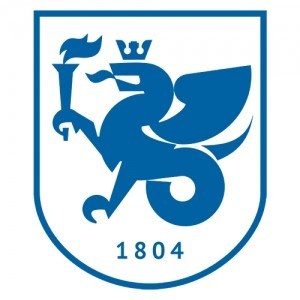Photos of university / #aub_lebanon
The Bachelor of Science in Pharmacology and Toxicology at the American University of Beirut offers a comprehensive curriculum designed to prepare students for careers in drug development, safety evaluation, and biomedical research. This program provides students with a solid foundation in the fundamental principles of pharmacology, including drug mechanisms of action, pharmacokinetics, and pharmacodynamics, alongside in-depth study of toxicology, environmental health, and the physiological basis of drug effects. Through a combination of rigorous coursework, laboratory experiments, and research projects, students gain practical skills in experimental design, data analysis, and laboratory techniques that are essential for careers in pharmaceuticals, healthcare, research institutions, and regulatory agencies.
The program emphasizes interdisciplinary learning, integrating topics such as biochemistry, molecular biology, physiology, and pathology to deepen students’ understanding of how drugs interact with biological systems. Students are encouraged to develop critical thinking and problem-solving skills necessary for evaluating drug efficacy and safety. Additionally, the curriculum includes modules on ethical considerations, regulatory guidelines, and the societal implications of pharmacological and toxicological research, preparing graduates to contribute responsibly to public health initiatives and scientific advancements.
Students have access to state-of-the-art laboratories and research facilities where they can engage in hands-on experiments and internships, gaining real-world experience under the supervision of faculty members who are experts in their fields. The program also fosters opportunities for active participation in research projects, conferences, and collaborations with industry partners, facilitating a smooth transition into professional roles or advanced studies in related fields. Graduates of the BSc in Pharmacology and Toxicology will be equipped with the knowledge, skills, and ethical framework to pursue careers in drug discovery, clinical research, regulatory affairs, environmental health, and academia, or to continue their education through postgraduate studies. Through its holistic approach, the program aims to contribute to the development of highly qualified professionals capable of advancing biomedical sciences and improving healthcare outcomes locally and globally.
Core Courses
The minimal courses required for an M.S. degree in pharmacology are the following:
First Year
- Physiology 310 General Physiology Cellular Mechanisms 3 credits
- Physiology 300 Homeostasis 2 credits
- Physiology 302 Cardiovascular Physiology 2 credits
- Physiology 304 Metabolism 3 credits
Second Year
- Faculty of Medicine 301 Introduction to Medical Literature 2 credits
- Pharmacology 300 Pharmacology and Toxicology 9 credits
Third Year
- Pharmacology 311 - 312 M.S. Thesis
Course Offerings
- PHRM 240. 3 credits, Pharmacology and Therapeutics. (For undergraduate nursing students)
- PHRM 228 - 300, 9 credits: Pharmacology and Toxicology. (For medicine and graduate students)
- PHRM 303 - 304, 3 credits: Pharmacological Methods
- PHRM 305 - 306, 3 credits: Enzymological Biossays
- PHRM 307 - 308, 3 credits: Tutorial in Pharmacology
- PHRM 309 - 310, 1 credit: Pharmacology Seminar
- PHRM 311 - 312, 9 credits: MS Thesis
- PHRM 260, (1- 2 months): Elective in pharmacology
- PHRM 314, 3 credits: Advanced pharmacology and therapeutics (for graduate nursing students)
Pre-requisites
A sound knowledge of physical and organic chemistry, zoology and botany, and mathematics is required. It is preferable that students take the following courses or their equivalents:
- Biology 201, 202
- Chemistry 201, 206, 211, 212, 210
- Mathematics 201
- Physics 204, 205, 206, 207
Students are required to submit a graduate application online, and to have a GPA of at least 80 or 3.0 and good recommendations to be considered for admission in a process that is competitive. Applicants to any graduate program other than AUB graduates and graduates of recognized colleges or universities in North America, Great Britain, Australia, and New Zealand, must demonstrate proficiency in the English language.
The University provides fellowships covering partial or full tuition and a small stipend for students at the graduate level in return for a specified number of work hours per week in an academic department. Recipients are selected on the basis of their academic record and departmental needs.
The Department of Pharmacology and Toxicology at the American University of Beirut offers a comprehensive program designed to prepare students for careers in biomedical research, drug development, clinical sciences, and regulatory affairs. The curriculum emphasizes a solid understanding of the mechanisms of drug action, pharmacokinetics, pharmacodynamics, and the principles of toxicology. Students are trained in laboratory techniques, research methodologies, and data analysis relevant to pharmacological and toxicological investigations. The program aims to equip graduates with both theoretical knowledge and practical skills necessary to contribute to advancements in medicine and public health.
The program typically includes coursework in biochemistry, physiology, and molecular biology to provide foundational sciences that underpin pharmacology. Advanced courses focus on receptor theory, drug metabolism, clinical pharmacology, and safety pharmacology, ensuring a broad and in-depth understanding of drug behavior and safety. Additionally, the toxicology component covers the study of adverse effects of chemicals on biological systems, risk assessment, and regulatory policies. Students also participate in hands-on laboratory research, often involving projects related to drug efficacy, safety testing, or environmental toxicology.
Research opportunities are a key part of the program, with students encouraged to engage in research projects under faculty supervision. These projects may involve collaborating with local hospitals, pharmaceutical companies, or governmental agencies to address real-world challenges. The program also promotes interdisciplinary approaches, integrating pharmacology and toxicology with fields such as pharmacogenomics, clinical sciences, and public health, to prepare students for diverse career paths.
Graduates of the program are well-equipped to pursue further studies at the graduate or professional level, or to enter industries such as pharmaceuticals, biotechnology, healthcare, regulatory agencies, and academia. The program typically aims to foster critical thinking, ethical research practices, and effective communication skills, enabling graduates to contribute meaningfully to scientific and medical communities. The American University of Beirut's reputation for academic excellence and its active research environment provide a supportive setting for students to develop their expertise and leadership in pharmacology and toxicology.









